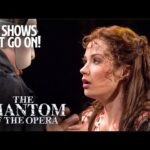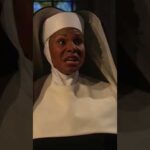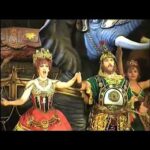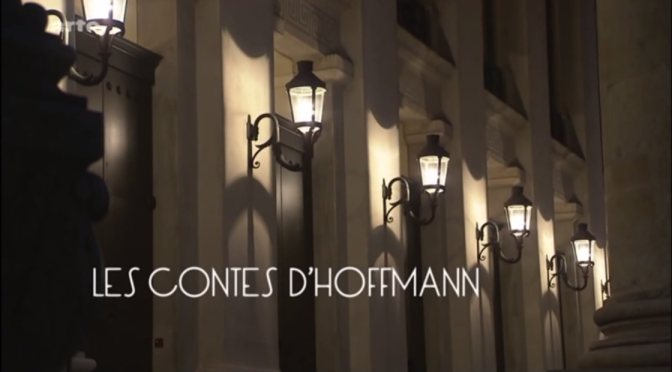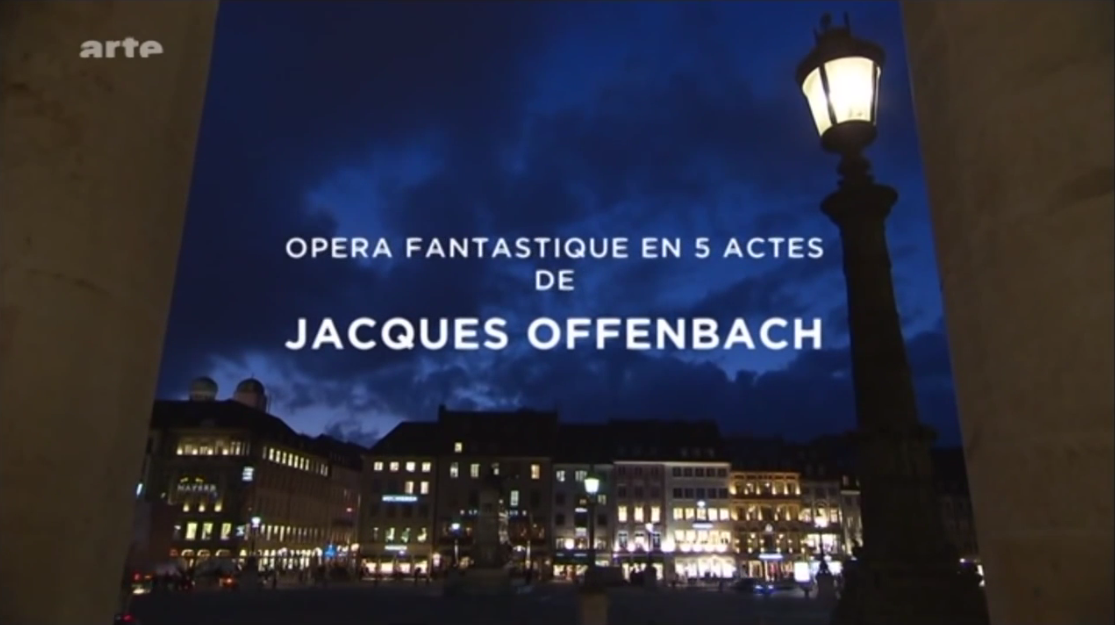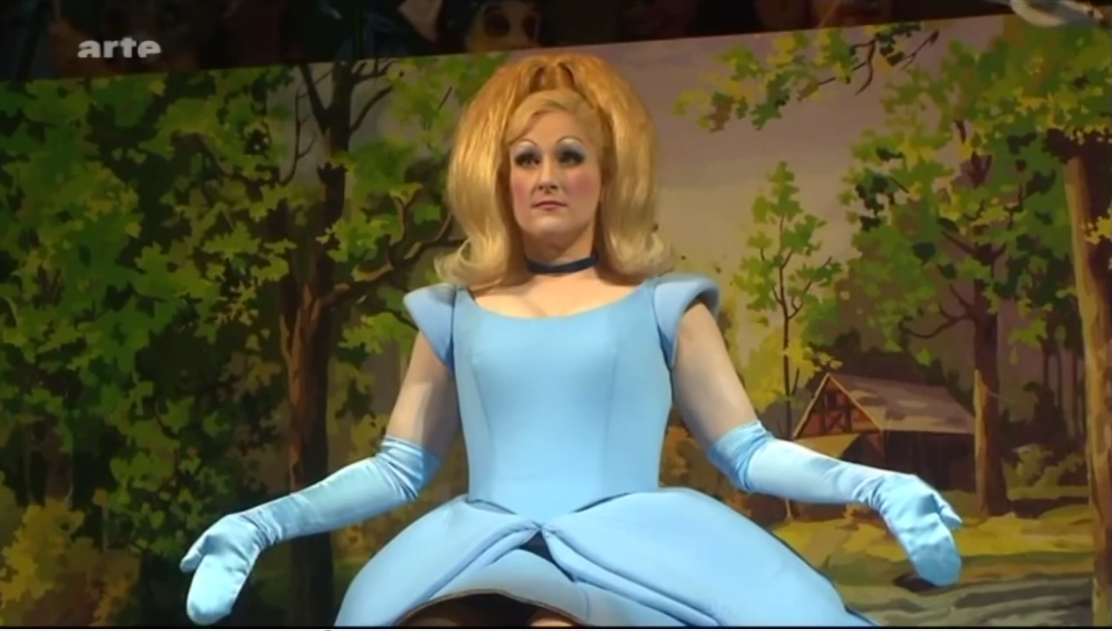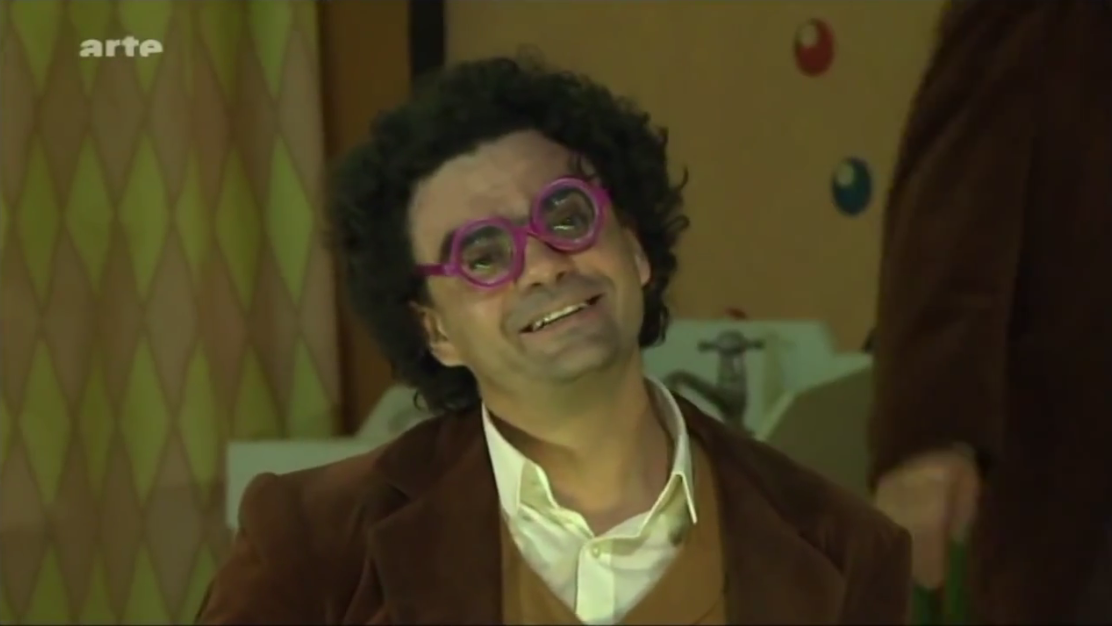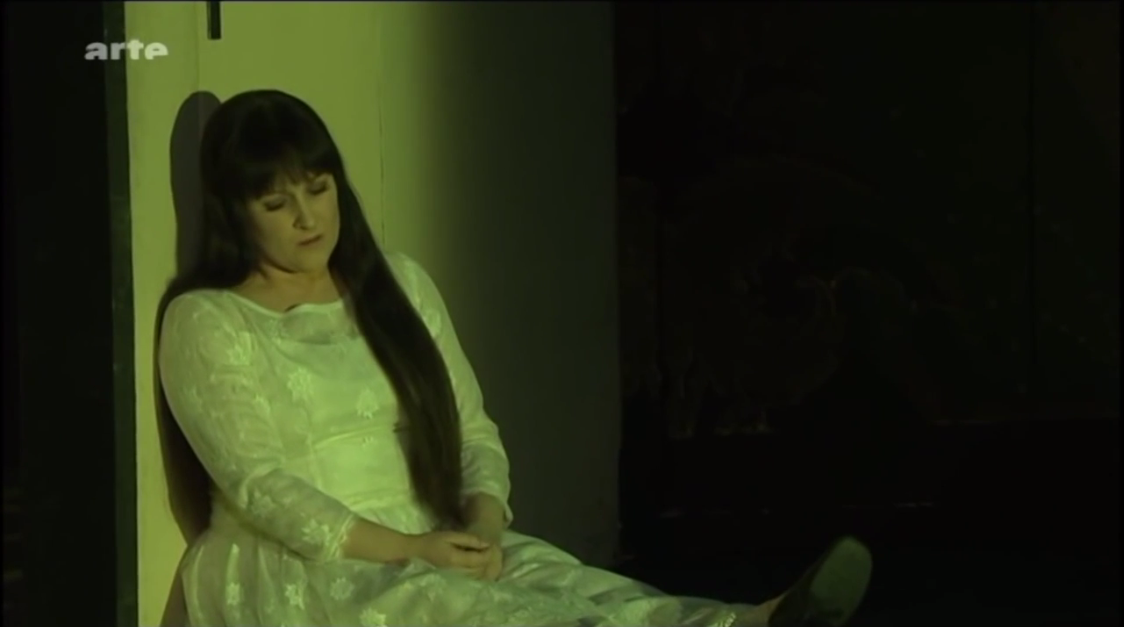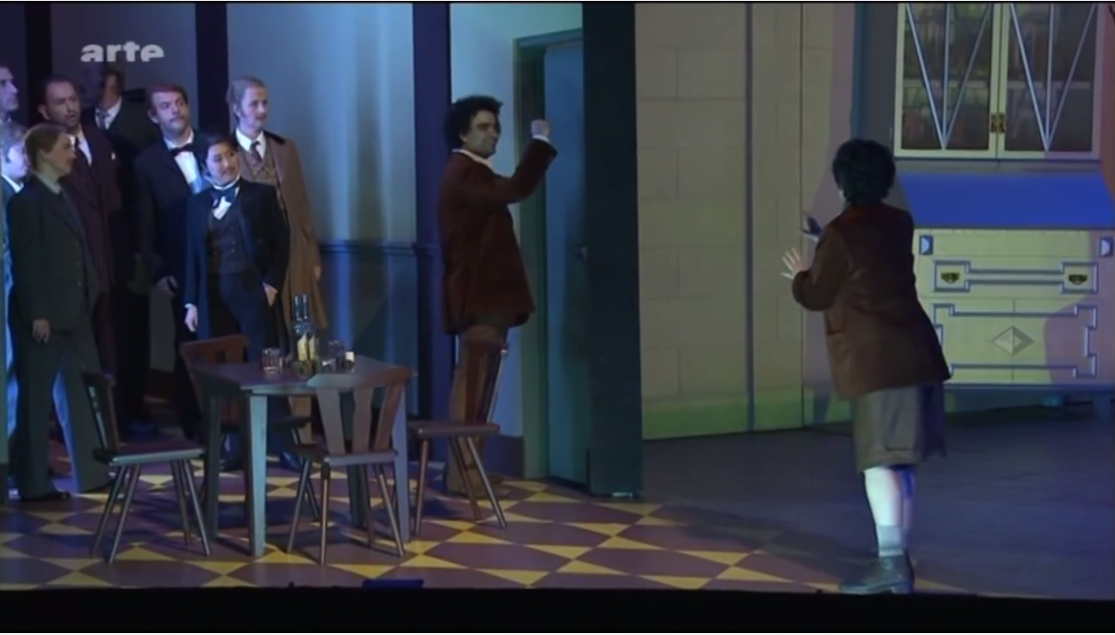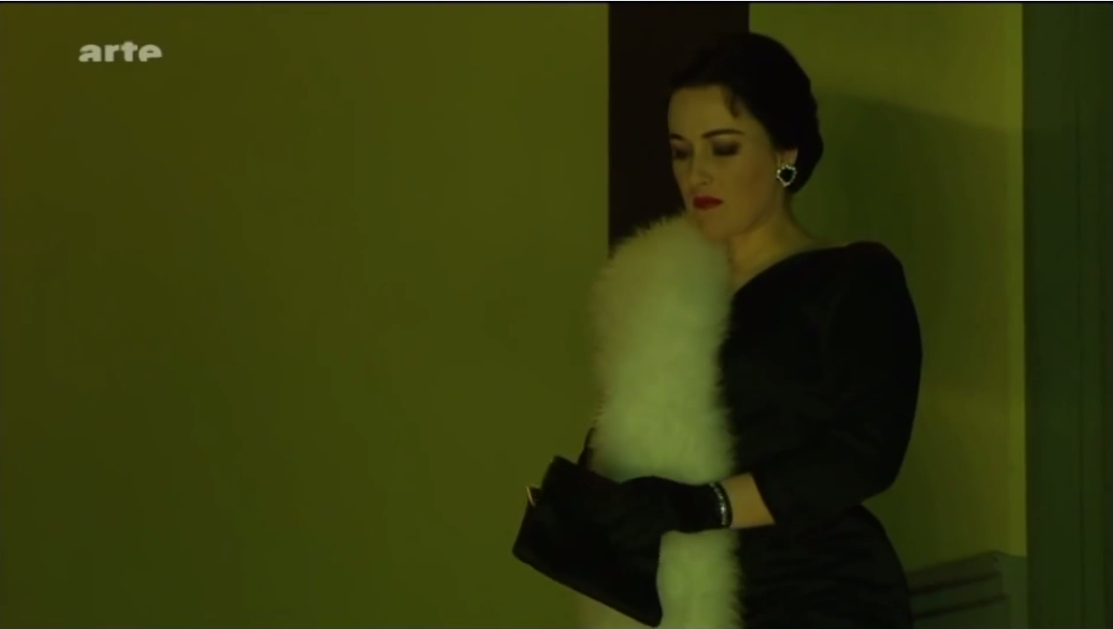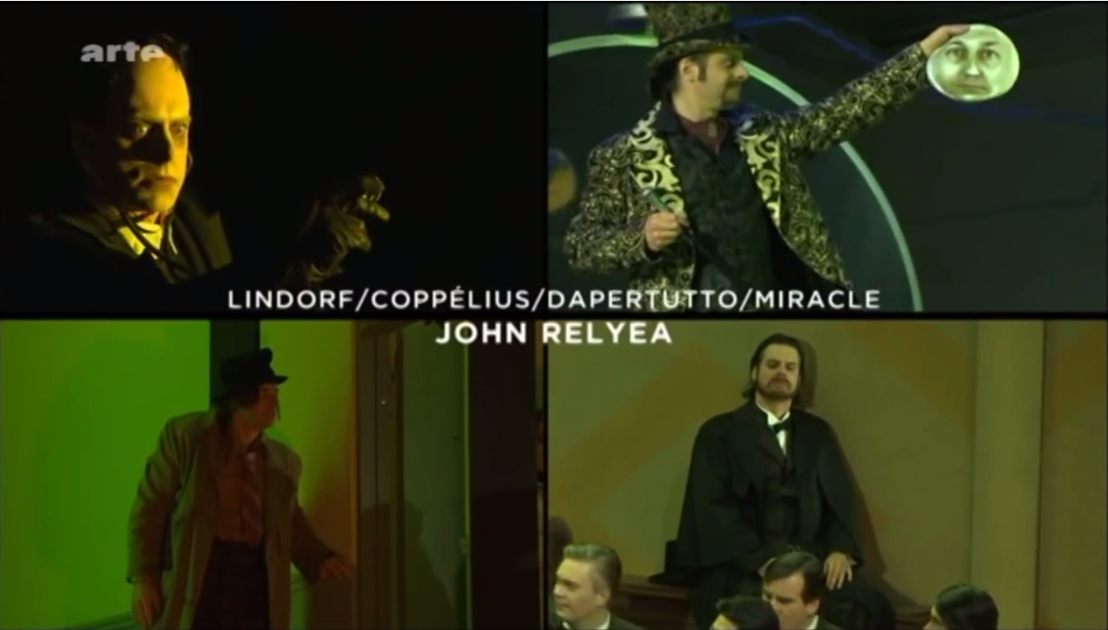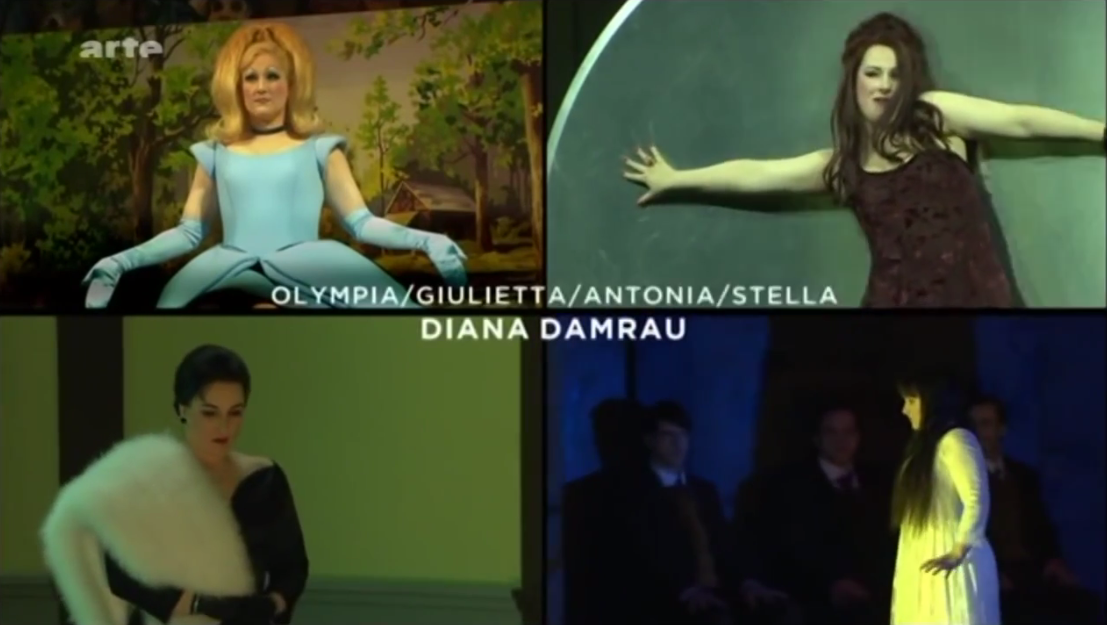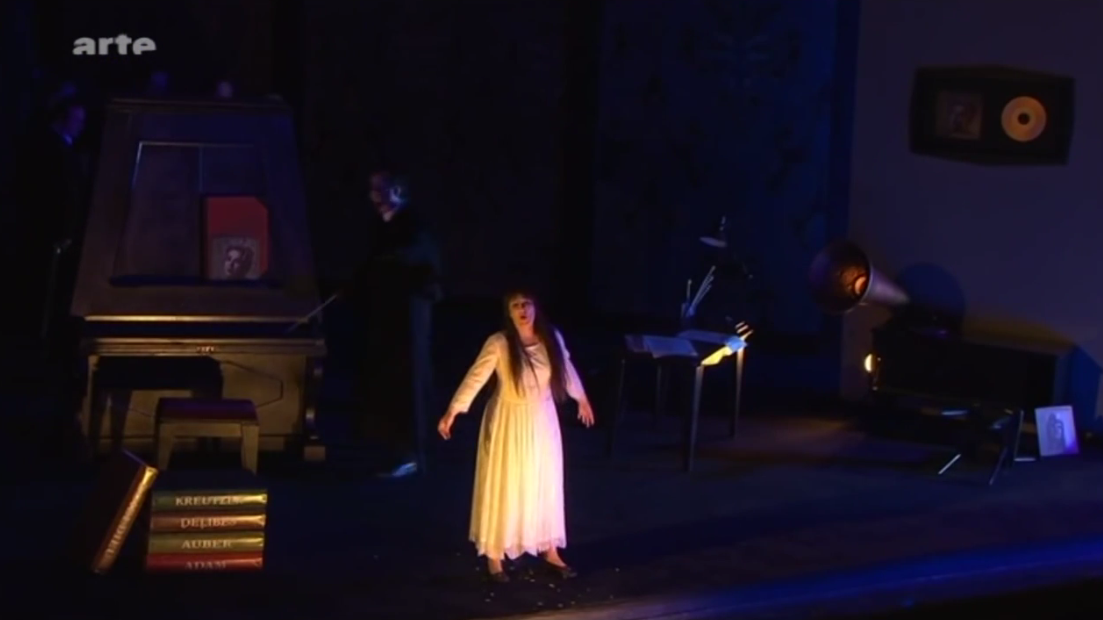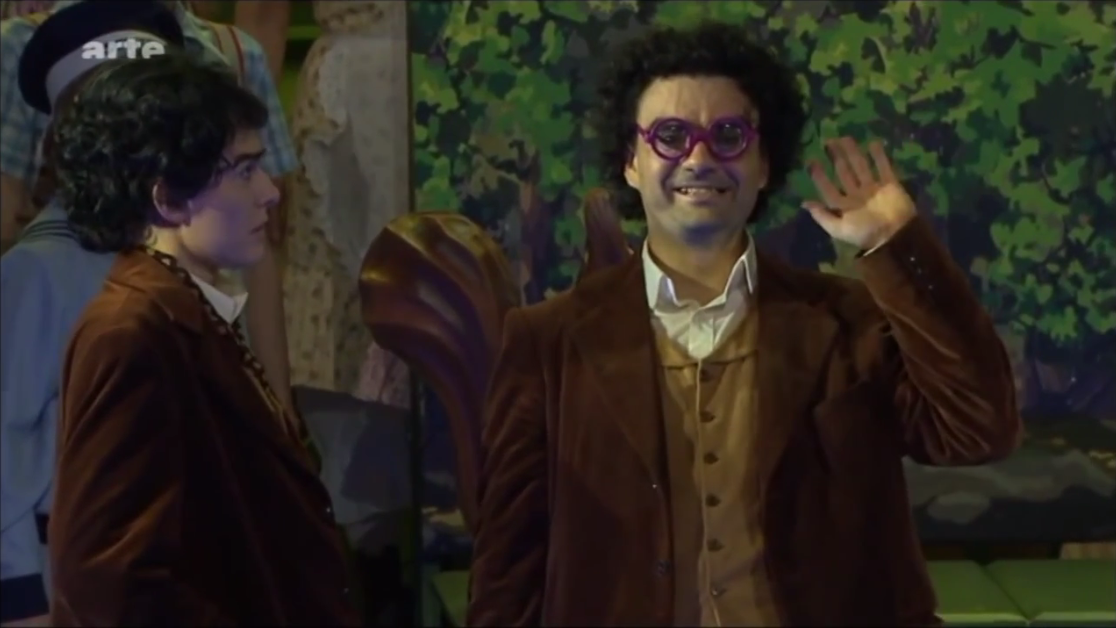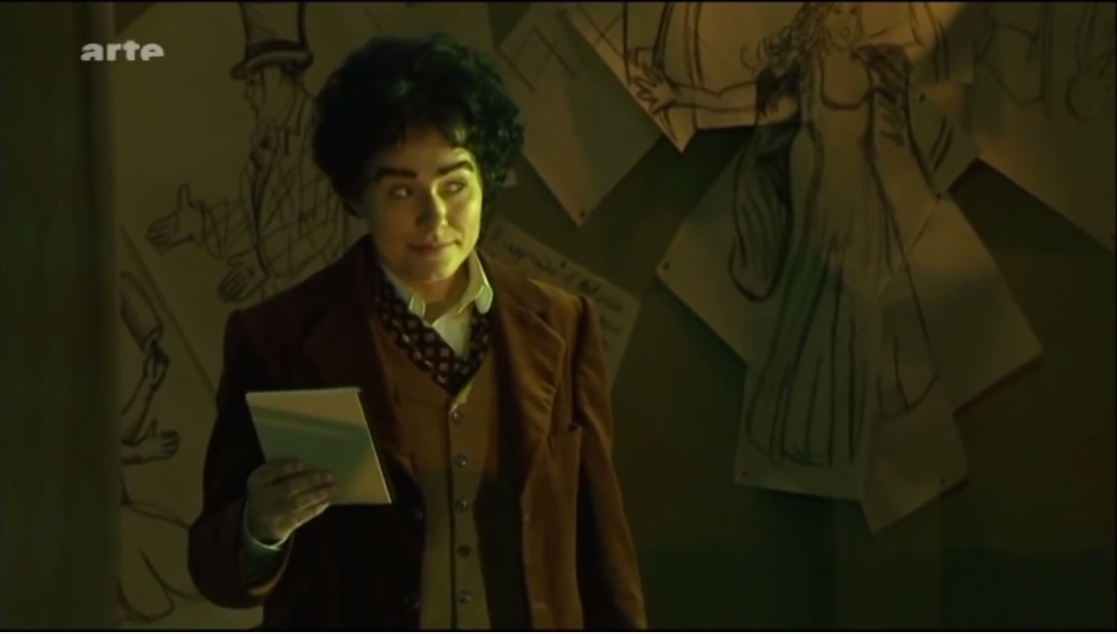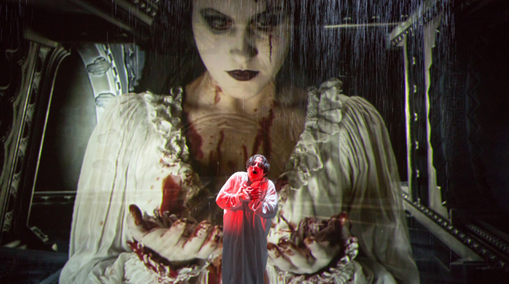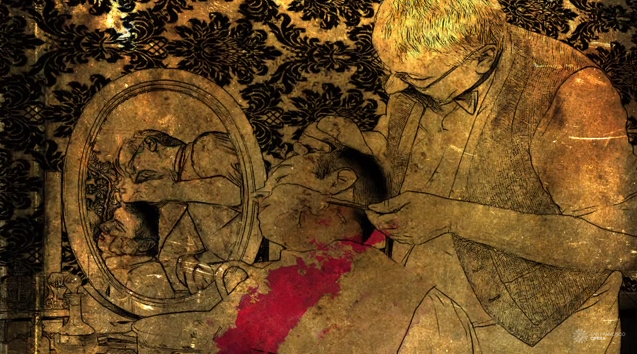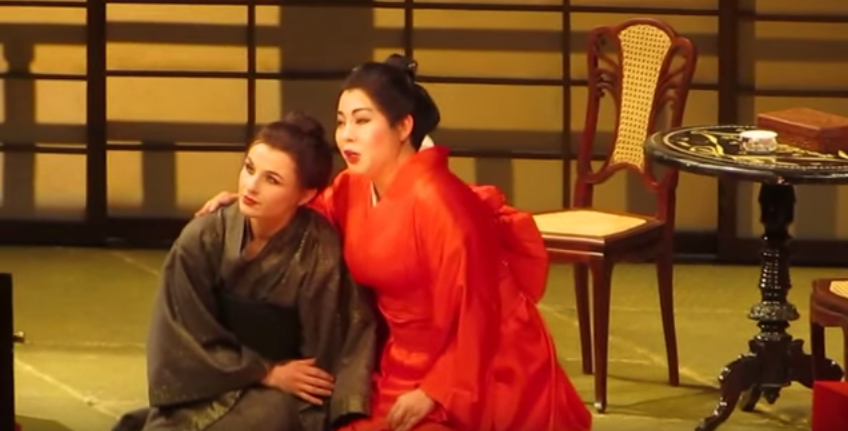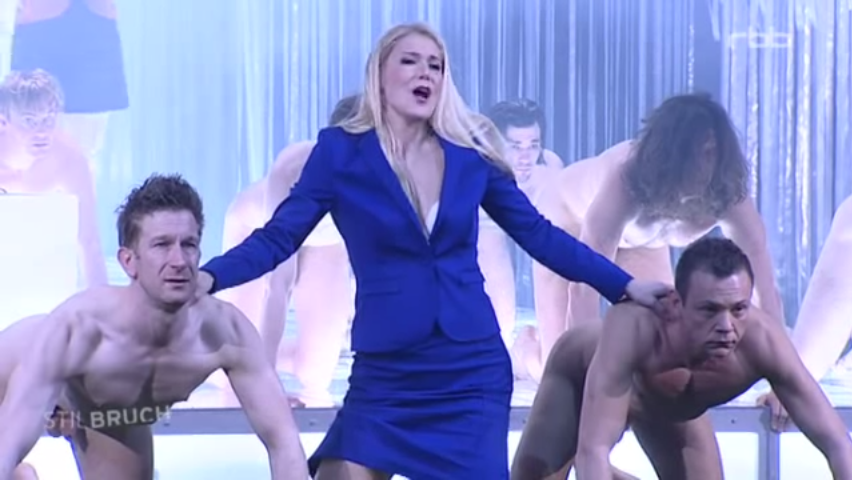I remember promising to write a review about the French opera Les Contes d’Hoffmann (Tales of Hoffman) in a previous article although I saw myself writing a review of another version of this classic French opera by Jacques Offenbach – a tale about how a writer’s creativity is motivated more by his passions. It spurns his need to create.
This opera is based from 3 of the short stories written by Ernst Theodor Amadeus Hoffman. They were used here with Hoffmann himself being the titular character. Now before thinking this is a biography, the moment you watch it, you would realize that, given the right presentation, this is actually exploring the mind of a writer since some of his stories revolve around women. Since some writers drink like fish, the possibility of a writer blurring the lines between fiction and reality are explored here. In fact, it served as the meat in the story.
Now the version that did not get me scratching my head at most parts was the one presented at DePuis Le National Theater de Munich (with Bayerische Staatsoper as the orchestra). It’s the version I found online with French subtitles (very helpful since at least I get to see the lyrics that I am humming along to) with Rolando Villazon as the titular character, Hoffmann. Who plays who for the rest of the characters? I will mention them later for the sake of those unfamiliar with this story.
The real Hoffmann has seen the play version of this opera. Unfortunately he did not live long enough to see the opera version. But it seemed like he didn’t have a problem with being presented in theater as an alcoholic. It is even presented as opera fantastique (or fantasy opera since Hoffmann’s short stories have a gothic element in them).
Prologue (Act 1)
The Muse (played by Angela Brower) did not have a problem with her ward, Hoffmann, being an alcoholic as it enliven’s the latter’s creativity. Could The Muse be for real or she’s just another figment of Hoffmann’s imagination? She claims to be disguised as Hoffmann’s lackey, Nicklausse. And s/he is the only companion Hoffmann had in his flat.
But he has a life outside that flat though. Among his friends, he is the life of the party. Friends are willing to smoke pipe and drink wine with him in exchange for story time (because men get extra talkative when drunk). After one of the listeners in the bunch, Lindorf, smelled BS in his story, he then coaxed Hoffmann to share about his 3 great loves.
Olympia (Act 2)
Hoffmann went to see Olympia sing despite Nicklausse’s protestations that Olympia is not a real woman. No it’s not what you think. Hoffmann didn’t care because he had fallen too deep in love with her.
I admit to find this part creepy since the Olympia discussed here is a young girl. Not too young but young enough to be acknowledged as such. She wears blonde pig tails and a nice little dress. While I am aware at how young men can be attracted to young girls, I was hoping that it happened to Hoffmann’s life when he was almost as young as Olympia.
Things turn for the worse when a merchant named Coppelius arrived. He was actually looking for Olympia’s father, Spalanzani, but ended up selling some “magic glasses” to Hoffmann. Hoffmann bought a pair, presumably rose-colored glasses, that made him see Olympia like a real girl blowing him a kiss. Rose-colored glasses? You bet.
The audience is made to see the flaws in Olympia’s character that Hoffmann does not see – she acts a little too robotic. But she sounded great upon singing “Les oiseux dans la charmille” (The Doll Song) and her singing ability is one reason for her popularity in the community. The audience can also see how she bogs down in the middle of the song.
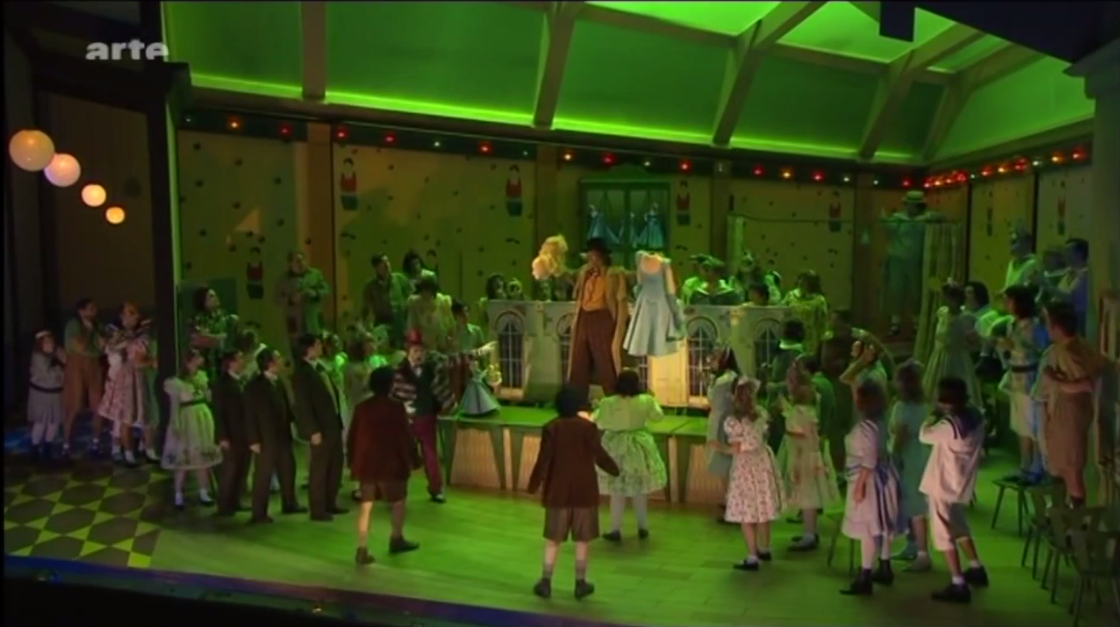
Hoffmann only realizes the folly of his ways the moment he falls down and the glasses break – exactly at the time where Coppelius arrives to dismantle Olympia. Coppelius was claiming that he was underpaid when in fact, he and Spalanzani created her. Hoffmann was in love with a robot all along. Sounds worse than friendzone to me.
Antonia (Act 3)
Fast forward to several years later and it turns out that Hoffmann found another love, Antonia. But he had to find her again after Crespel, her father, took her away to separate the lovers. Antonia can sing and Hoffmann encourages her to develop her talent – a bad influence in the eyes of Crespel. In the first minutes of this act, Antonia was shown singing “Elle a fui, la tourterelle” (The Turtledove Has Fled). In the middle of the aria, she was gasping for breath. There goes the irony of her father trying to keep her alive while she feels like dying if she doesn’t sing.
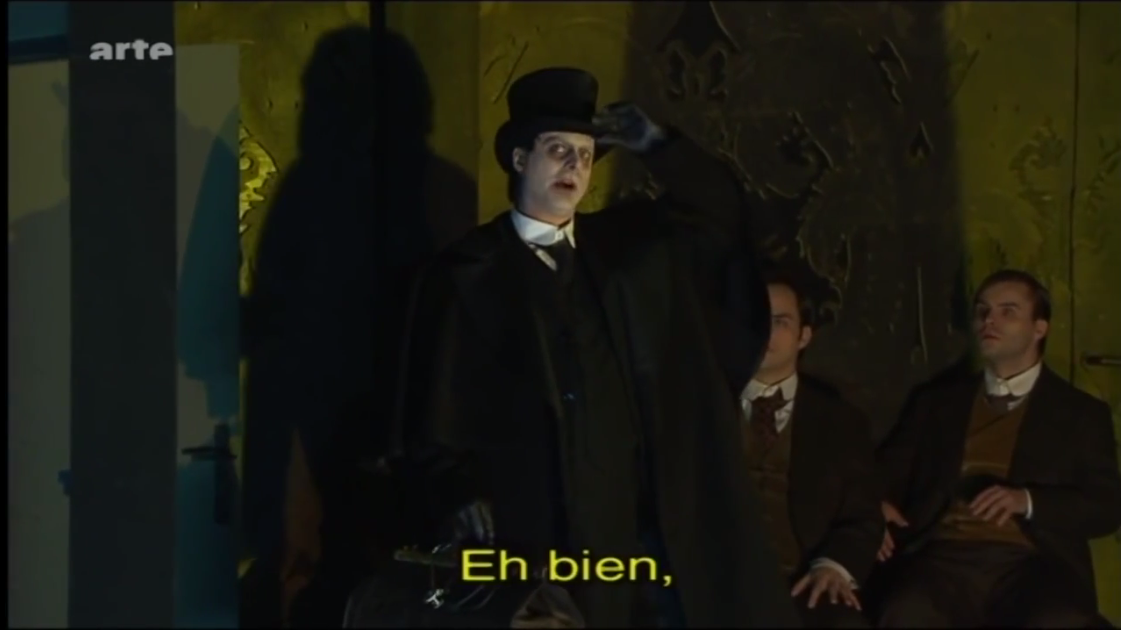 If ever Antonia’s true illness was never discovered, it is because the only doctor in town was more like a reincarnation of Frankenstein, the inappropriately named Dr. Miracle. In fact when he heard Antonia sing, he felt bad about the lost income unless he takes her as his ward. I told you this doctor is creepy. He found time to encourage her to sing with the help of her mysticism. And she kept on singing until it weakens her. Crespel enters her room just in time to see her die and blames poor Hoffmann for her death.
If ever Antonia’s true illness was never discovered, it is because the only doctor in town was more like a reincarnation of Frankenstein, the inappropriately named Dr. Miracle. In fact when he heard Antonia sing, he felt bad about the lost income unless he takes her as his ward. I told you this doctor is creepy. He found time to encourage her to sing with the help of her mysticism. And she kept on singing until it weakens her. Crespel enters her room just in time to see her die and blames poor Hoffmann for her death.
Wait what? Maybe the poor old man really just hated Hoffmann that much that instead of blaming the doctor, he blamed his daughter’s lover. Some people can just be so unfair.
Giulietta (Act 4)
Okay now, a doll, a sickly maiden and now a courtesan? Hoffmann must have been having a hard time finding love. He thought Giulietta, his third great love, liked her too. Unfortunately she is only acting under the orders of her pimp, Captain Dapertutto. And this is where you realize that Hoffmann is more of a romantic and less of a horndog. He loved Giulietta but he’s not in a rush to get to third base and spread her legs. He had some wine first and then proceeded to Giulietta’s room.
Dapertutto and Giulietta just need Hoffmann’s reflection. The opera didn’t show why and neither character mentioned why. It just showed a couple of men ahead of Hoffmann tricked to face a revolving mirror and losing their reflections afterwards. Hoffmann got tricked into giving up his reflection as well. So much for being a romantic. If not for Nicklausse dodging the plan to kill him (him – because that’s what all characters in this story see – a male lackey), he would not have reversed the spell.
Characters and the Actors
In this version, it was Nicklausse who revealed at the Epilogue (Act 5) that all 3 women are just facets of Hoffmann’s greatest love, Stella. It was implied that Hoffmann loved her all along his whole life. His greatest regret is not pursuing for her even if Stella likes her too. This is why I did not reveal immediately ere who played the characters. But you will find the casting method familiar if you have seen Cloud Atlas.
If Stella is presented in fiction as 3 different characters, it made sense that all characters (Stella, Olympia, Antonia and Giulietta) would be played by the same soprano, Diana Damrau, as it was in the original production of Les Contes d’Hoffmann. It revealed a writing style that perhaps a lot of writers can relate to. Even if you change the names, places and time that the story happened, chances are you still end up thinking of the same person every time a character is written in fiction. Which one happens first? You fall in love with a person and turn her into a fictional character? Or you fall in love with a fictional character because she reminded you so much of your greatest love?
The same dynamic apply to writing your villains. You hate someone so much that you end up writing about him as a fictional villain in all of your short stories or fan fiction drafts. This explained why in all 3 stories (plus the fictionalized account at the tavern), all villains are portrayed by John Relyea.
Now the challenge comes in once these literary works transcend into theater from straight plays to opera. I like this version. The crew behind this production knew that the biggest draw of Les Contes d’Hoffmann is the music. But the appearance that the actors channeled in order to introduce a different character for each act is worth noting and highly commendable. The moment you succeeded in disappearing into a character and you have more than 1 character to play in an opera, you are amazing.
For the villains, you can tell them apart. Lindorf is an aristocrat with a stiff upper lip. Coppelius is a mad scientist with financial issues. Dr. Miracle looked more like a doctor straignt from zombie films with a decomposing face. And Dapertutto stole his suit from the Riddler’s closet (at least, in this version). Excellent makeup, I should say too.
Diana Damrau has a bigger challenge to hurdle though since it’s not just the appearance that needed to be different for each character but the singing as well. The main reason why most productions would cast 3 different sopranos into these roles is because of the differences of the singing methods that each character demands – 3 different emotions for 3 distinct arias.
Damrau was heart-warming and emotional as Antonia. She even sported pale makeup to emphasize how sick she has gotten yet she still wanted to sing. On the other hand, she’s vile and cunning as Giulietta. Her disheveled hair suggests that she may have been humping more men that night to capture more reflections before dumping them. But as Olympia, she was okay to say the least. I remember having LSS tendencies for The Doll Song but it wasn’t her version that got stuck in my head. But I love her version of “Elle a fui, la tourterelle”. Most of the arias she sang that I ended up liking were from the Antonia act. I love the change of outfits done on her from the wig to the makeup to the little details that Damrau added to her act.
The makeup done to Angela Brower as Nicklausse felt like a visual joke. Not that I’m complaining but just because of role of Hoffmann ended up with Villazon, they would make her sport thick brows and a curly wig too. They tried making her look like a boy that I thought Brower would have her “Muse Moment”. She didn’t. I have yet to see a version where they let the Muse ditch the trouser, coat and top hat and reveal herself. Good thing she really sounded great. And she really acted the part well too. She’s like a young lad always excited to learn new things and explore everything else about humans if not for her self-imposed vow to keep an eye on Hoffmann.
The noticeable thing about Nicklausse though is it seems as if Hoffmann is the only person in the room that can see him. I am referring to the Prologue and the Epilogue acts. But you can’t ignore her and I mean that in a good way because she has a nice way of lighting up the room and make the audience realize her presence when some characters in the opera just don’t.
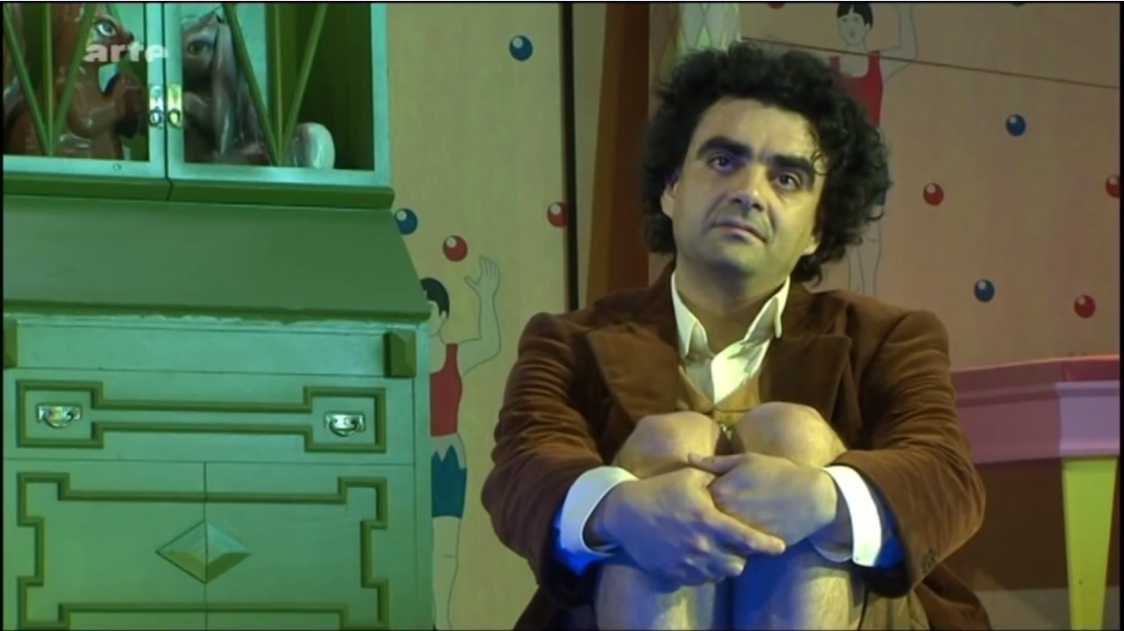
And then Rolando Villazon. While I am aware of his tendency to oversing, in scenes that needed genuine/believable acting, he delivers. Not everyone appreciates watching opera with some line spoken instead of sung but it worked for all of the characters, including Villazon. If the scene needed angst, sadness and loneliness without having to sing, he delivers even in scenes where he doesn’t have lines. He can switch from a lovesick puppy to a frustrated, angry man drowning in liquor. The latter scene looked improvised which says a lot about the kind of dedication Villazon puts in his performance. I loved it.
Is this version already available in DVD? Google and Yahoo says no. Even Villazon’s website doesn’t show it. Maybe they’re still testing the demand for it. It would be great to have a copy of it though knowing that Les Contes d’Hoffmann will be remembered more if you have memorable performances and production value to go with the mesmerizing music. At least we can officially have copies that we can call our own.
For more updates regarding musicals and opera and everything in between, like our page, MusicalsOnline.com. For some positive reinforcement and inquiries if ever you need content providers for your website, like my Facebook page too, Purple Thunder Solutions. Thanks for reading.
